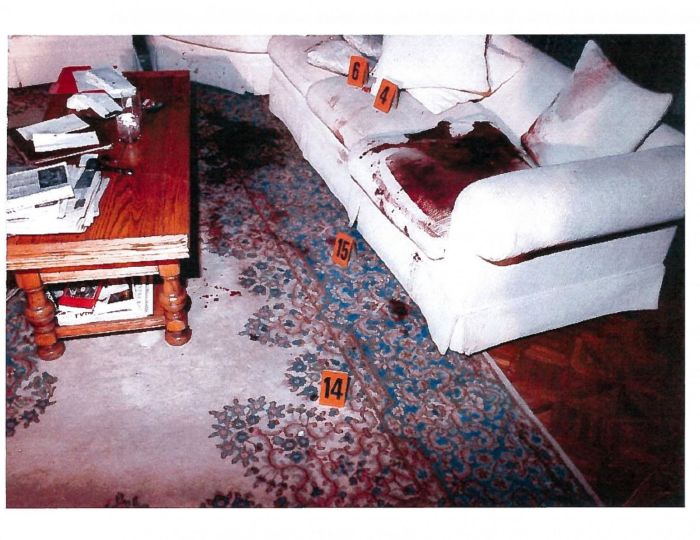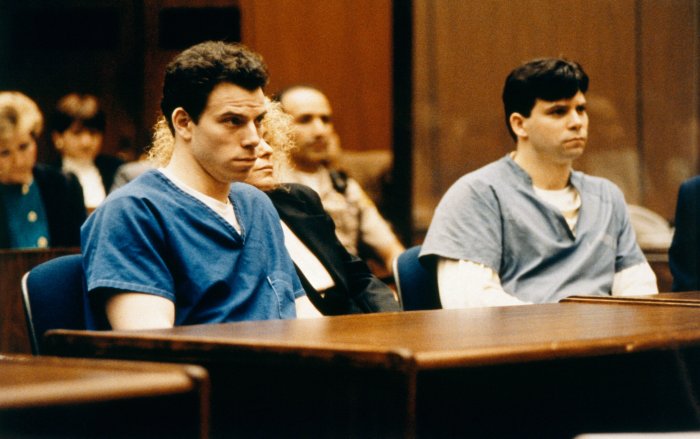The Menendez Family Alleges ‘Monsters’ Depiction of Sexual Abuse Is the ‘Height of Pure Evil’ – a statement that encapsulates the ongoing controversy surrounding the infamous case of the Menendez brothers. This case, which captivated the nation in the early 1990s, involved the brutal murders of the brothers’ parents, José and Kitty Menendez.
The brothers, Lyle and Erik, claimed they acted in self-defense after years of alleged abuse at the hands of their father. The media frenzy surrounding the trial, however, often painted the brothers as cold-blooded killers, fueling public outrage and casting a long shadow over the case.
The brothers’ allegations of sexual abuse, particularly against their father, José Menendez, became a central point of contention. The media’s portrayal of the brothers as “monsters” sparked a fierce debate about the ethical implications of media coverage in high-profile criminal cases.
The Menendez family vehemently challenged this depiction, arguing that it was a distorted and unjust portrayal of their loved ones. The case continues to be a subject of fascination and debate, raising questions about the complexities of justice, media influence, and the enduring power of public perception.
The Ethical Implications of Media Coverage

The Menendez brothers’ case, a high-profile murder trial that captivated the nation, highlighted the ethical dilemmas inherent in media coverage of such sensitive and complex issues. Balancing the public’s right to know with the need to protect the rights and privacy of individuals involved presents a constant challenge for journalists.
This section explores the ethical considerations involved in media coverage of high-profile criminal cases and the potential consequences of sensationalized reporting.
Sensationalized Reporting and Its Impact
Sensationalized reporting, often driven by the pursuit of higher viewership or readership, can have a detrimental impact on public perception and the legal process. The media’s tendency to focus on the most dramatic aspects of a case can lead to biased and inaccurate representations of the truth.
This can create a climate of prejudice and make it difficult for individuals to receive a fair trial.
- One example of the negative consequences of sensationalized reporting is the widespread public perception of the Menendez brothers as guilty before their trial even began. The media’s relentless coverage of the brothers’ alleged crimes, often presented in a lurid and sensationalized manner, created a strong bias against them in the public’s mind.
This bias made it difficult for the brothers to receive a fair trial, as potential jurors were already predisposed to believe they were guilty.
- Another example is the case of Casey Anthony, who was acquitted of murder charges in the death of her daughter Caylee. The media’s coverage of the case was highly sensationalized, with many outlets focusing on Anthony’s alleged promiscuity and her perceived lack of remorse.
Obtain direct knowledge about the efficiency of Painting pets help raise $30,000 for Norfolk SPCA, d’Art Center through case studies.
This coverage contributed to a climate of public outrage and led to Anthony being vilified in the court of public opinion, even after she was acquitted.
Ethical Practices in Media Coverage, Menendez Family Alleges ‘Monsters’ Depiction of Sexual Abuse Is the ‘Height of Pure Evil’
Ethical practices in media coverage of criminal cases prioritize accuracy, fairness, and respect for the legal process. Journalists should strive to present a balanced and objective account of the facts, avoiding sensationalism and prejudice. They should also be mindful of the impact their reporting has on the individuals involved and the public at large.
- One example of ethical practices in media coverage is the use of neutral language and avoiding speculation. Instead of stating that a defendant is “guilty” or “innocent,” journalists should focus on reporting the facts of the case and allowing the legal system to determine the outcome.
- Another ethical practice is to respect the privacy of victims and their families. Journalists should avoid publishing information that could identify victims or their families, especially if they are minors or have expressed a desire for privacy.
The Legacy of the Menendez Case: Menendez Family Alleges ‘Monsters’ Depiction Of Sexual Abuse Is The ‘Height Of Pure Evil’
The Menendez case, a sensational trial that gripped the nation in the early 1990s, continues to resonate in the American consciousness, leaving a lasting impact on society and the legal system. This case, involving the murder of Jose and Kitty Menendez by their sons, Erik and Lyle, sparked intense debate about domestic abuse, the criminal justice system, and the role of media in shaping public perception.
The Case’s Influence on Public Discourse
The Menendez case fueled a national conversation about domestic abuse and its devastating consequences. The brothers’ claims of years of physical, emotional, and sexual abuse at the hands of their father, Jose, resonated with many who had experienced similar traumas.
The case highlighted the complexities of domestic abuse, emphasizing the long-term psychological effects on victims and challenging societal norms that often minimized or dismissed such experiences.
- The case sparked a public debate on the validity of the battered child syndrome defense, a legal argument that recognizes the psychological effects of abuse on victims.
- The trial brought to light the pervasive nature of domestic abuse, raising awareness of the issue and prompting more open discussions about its impact on individuals and families.
- The case also shed light on the challenges faced by victims of abuse, particularly in seeking justice and breaking free from abusive relationships.
The Case’s Impact on the Criminal Justice System
The Menendez case raised significant questions about the criminal justice system’s ability to address cases of domestic abuse and its handling of complex legal arguments, particularly in the context of self-defense.
- The trial highlighted the limitations of traditional legal frameworks in addressing the unique circumstances of domestic abuse victims, prompting calls for reform and greater understanding of the psychological effects of abuse.
- The case also sparked debate about the role of expert testimony in court, specifically regarding the validity of psychological assessments and their influence on jury decisions.
- The lengthy trial, which spanned several years and involved extensive media coverage, raised concerns about the fairness and impartiality of the legal process, particularly in high-profile cases.
The Case’s Significance in Media Influence
The Menendez case stands as a prime example of how media coverage can shape public perception of justice and influence the course of legal proceedings.
- The case was widely covered by news outlets, generating intense public interest and shaping public opinion about the brothers’ guilt or innocence.
- The media’s portrayal of the case, often sensationalized and focused on the brothers’ privileged background and the graphic details of the murders, contributed to the public’s perception of the brothers as cold-blooded killers, despite their claims of abuse.
- The case’s impact on public discourse and the legal system highlights the significant influence of media in shaping public perception and influencing the course of justice.
Closing Summary

The Menendez case serves as a stark reminder of the intricate relationship between media, justice, and public opinion. While the brothers were ultimately convicted of murder, the enduring debate surrounding the allegations of abuse and the media’s role in shaping public perception highlights the need for careful consideration of ethical reporting practices in high-profile cases.
The case’s legacy underscores the importance of separating fact from fiction, and the enduring impact of public perception on the pursuit of justice.
Key Questions Answered
What was the outcome of the Menendez brothers’ trials?
Both Lyle and Erik Menendez were found guilty of murder and sentenced to life in prison without the possibility of parole. The trials were highly publicized and controversial, with the brothers’ claims of abuse being a central point of contention.
Are the Menendez brothers still in prison?
Yes, both Lyle and Erik Menendez are currently serving life sentences in separate California prisons.
Did the Menendez family ever reconcile with the brothers?
There have been conflicting reports about the relationship between the Menendez brothers and their surviving family members. Some sources suggest that there has been limited contact, while others indicate a more strained relationship.
Is the Menendez case still a subject of debate?
Yes, the case continues to be a topic of discussion and debate, particularly in relation to the ethics of media coverage in high-profile criminal cases, the impact of public perception on justice, and the complexities of domestic abuse.
 CentralPoint Latest News
CentralPoint Latest News




